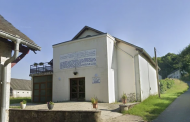Ahmed Soltan
By the end of March, Anne Speckhard and Ardian Shajkovci, researchers with the International Center for the Study of Violent Extremism (ICSVE) interviewed hundreds of captured terrorists in recent years, including a Canadian with dual Trinidad citizenship named Abu Henricki al Canadi, who turned himself in to Syrian Democratic Forces aligned with the U.S. this spring.
Canadi spoke with ICSVE researchers for about 1.5 hours on May 12, giving his firsthand account of being attracted to, traveling, joining and serving in the Islamic State Caliphate, first as a fighter and later designated as unable to fight due to chronic illness.
“As we were about to bring the interview to a close, Abu Henricki suddenly decided he trusted us enough to unburden himself of something that he claimed had been troubling him for some time,” Speckhard added in her article.
During the interview, he opened up to us about the whole story of his time under Daesh and the horrific mission they were trying to force him to undertake. “I knew I went to prison because I said no to their offer of an external attack mission,” Abu Henricki now explains. “But they wouldn’t say that.”
When asked about the DAESH plot, he explains, “They were going to move me to the Mexican side of the U.S. southern border via Puerto Rico.
“This was masterminded by a guy in America. Where he is, I do not know. That information, the plan came from someone from the New Jersey state from America,” he added.
He was going to take a boat from Puerto Rico into Mexico as the New Jersey guy was going to smuggle him in despite that he did not know where he would end up.
Abu Henricki was not pressed further on why Puerto Rico, a US territory, was not chosen as a point of entry to the mainland United States.
And when the interviewers asked whether he met any Daesh fighters from the US, he said, “There was a Bengali American. Abu Adam.” Trying to recall the others’ names, he adds, “Two cousins. They were from New York. One was American, but Turkish – Abu Ilias. He was from Texas. He was killed in Baghouz in a drone strike.”
Abu Henricki then opens up about a plot in which he said he and other Trinidadians were invited to attempt to penetrate the U.S. borders to mount financial attacks on the US.
When asked how this occurred, he said, ““The emni [DAESH intelligence arm] was inviting us,” which matches other cases we and others have uncovered, in which Daesh external emni identifies DAESH cadres willing to go home or attack in countries outside the Caliphate.
When asked if he can identify the emni member who invited him, as they routinely wore masks covering their faces, Abu Henricki answers, “He speaks English. He was Tunisian, maybe. I do not know. He approached the guys, and they approached me. He didn’t come directly to me.”
“Apparently, they have the contacts or whatever papers they can get to a false ID, false passports [to send me out for this kind of attack,” he added. “They have their system of doing it. So that’s maybe the way that I could have gone out with other individuals. It wasn’t me alone. They were sending you to Puerto Rico and from Puerto Rico to Mexico.”
He also clarified why he was put in a Daesh prison in 2016, as he was asked to leave Daesh to go to America as the terrorist group wanted him to carry out an attack, which he refused, leading to his imprisonment and torture.
Earlier in the interview, Abu Henricki talked about being imprisoned by Daesh at the end of 2016 and in early 2017, along with his Canadian wife. An hour earlier he was too afraid to share the real reason, saying only that he was becoming disillusioned of the Islamic State and was then accused of being a spy. Abu Henricki was severely tormented inside the Daesh prison in Manbij.
“They beat me a lot. [I was] suspended from the back, standing on my toes, given no food for a few days, waterboarded – while blindfolded, and they put a bag over your head. They found nothing on me, so I was released,” Abu Henricki had explained an hour earlier.
Henricki’s Canadian wife also heard the torments of others who were, so she suffered a psychological torture of sorts. After both were released, Abu Henricki recounts that his wife miscarried her pregnancy as a result of distress, and Abu Henricki went on to get a chronic, life-threatening, stress-related illness.
Abu Henricki only recently surrendered, during this spring’s Baghouz assault. Sleeping on the street, under heavy bombardments and starving, he was desperate to get out.
“I feel better now,” Abu Henricki says as he stands to leave, shaking both of the interviewer’s hands. “I’ve been carrying that inside for a very long time and it feels good now to unburden myself of it.”








































admin in: How the Muslim Brotherhood betrayed Saudi Arabia?
Great article with insight ...
https://www.viagrapascherfr.com/achat-sildenafil-pfizer-tarif/ in: Cross-region cooperation between anti-terrorism agencies needed
Hello there, just became aware of your blog through Google, and found ...